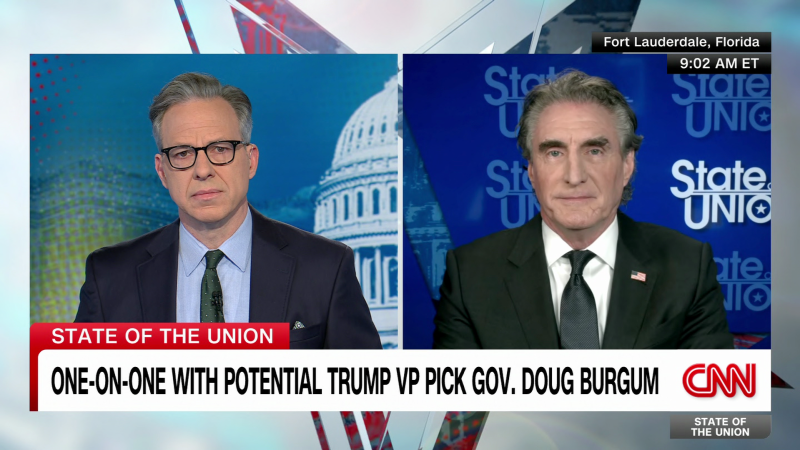Dmytro Gubariev’s remains have been sitting in his bedroom for 10 months, unmoved. That’s how long his mother has been waiting to bury his ashes.
His mother, Iryna Gubarieva, 52, is determined to ensure that her son, who died defending the Ukrainian city of Mariupol, is laid to rest as a hero in a long-promised National Military Memorial Cemetery — and says she knows that many other families are doing the same.
“We go to funeral ceremonies of his comrades-in-arms who are identified, and basically everyone remains unburied,” Ms. Gubarieva said, her voice starting to shake. “Families are waiting for this cemetery.”
Thousands of families have buried fallen soldiers in ordinary cemeteries across Ukraine, the graves, adorned with tributes, forming “Alleys of Heroes.” But Ms. Gubarieva and others in similar situations say that not only are those sites filling up after 17 months of war but that only a memorial akin to the United States military’s Arlington National Cemetery outside Washington befits their loved ones’ sacrifices.
“Defending our Ukraine, they are making a heroic deed, they are dying,” Ms. Gubarieva said, digging a fingernail into her palm. “We want it to be a worthy commemoration.”
Plans for a Ukrainian version of Arlington have been in the works for more than a decade. In May 2022, about three months after the war began, Ukraine’s Parliament adopted a law that provided for a National Military Memorial Cemetery. This past March, the government said that a site had been chosen — 20 acres of woodland in outer Kyiv — but construction has not begun.
Families like Ms. Gubarieva’s have attended meetings, written letters and staged a protest. They say that promises were made and that delays are complicating the grieving process.
“It is very difficult, because the ritual is not completed as it should be,” Ms. Gubarieva said.
Ukraine’s minister of Veterans Affairs, Yulia Laputina, said in written responses to questions that the speed of construction depended on solving an issue of land allocation. She did not provide further details, but she said that she and her colleagues “regularly communicate with the families of fallen heroes and understand their needs” and “will do everything necessary to implement this project.”
It is impossible to know how many families are holding out to bury their dead with the honor that they believe only a national cemetery could provide; the recent protest in Kyiv drew about two dozen people. But their anguish reflects the complicated reality of trying to memorialize soldiers killed in an ongoing war whose history is not yet fully written.
Dmytro Gubariev was killed on April 15, 2022, in Mariupol, where he had been fighting with Ukraine’s Azov Regiment.
“We didn’t know if we would be able to get his body at all,” his mother said on a recent afternoon. “It was a very long procedure. There were exchanges of bodies.”
It was not until late last August that his remains were identified. The family then had him cremated, intending to bury him at the designated national military cemetery. They could not bear the thought of leaving him in storage at the crematorium, Ms. Gubarieva said, so they brought his ashes home.
The black urn sits on a shelf in his bedroom, along with some of his books, cologne and a flag presented on behalf of President Volodymyr Zelensky. Some nights, Ms. Gubarieva crawls into the twin bed below it where her son used to sleep, resting her head on the fluffy cat pillow.
September will mark one year that her son’s ashes have awaited burial, Ms. Gubarieva said.
“This is not normal,” she sighed, lamenting the lack of a grave for his loved ones to visit.
Ukraine’s Ministry of Veterans Affairs is undoubtedly overwhelmed, dealing with the rehabilitation of hundreds of thousands of veterans — all while the ranks keep growing.
And Arlington, which inspired Ukraine’s project, itself had complex origins: It was initially created during the Civil War, more to address overcrowding in existing cemeteries than as a uniquely august memorial site.
That is little consolation to Viktoria Krasovska, who sometimes carries her husband’s remains in a backpack to his mother’s house, placing them on a mantle that has become a small shrine.
“They have already promised,” she said. “Let them fulfill their promise for once.”
Burying her husband, Vitaliy Krasovsky, in a civilian cemetery would not only be disrespectful, Ms. Krasovska said — there is also the question of space.
“Every day our soldiers are killed, and we don’t know where to bury them, because everything is already overcrowded,” she said.
Ukraine’s military has not released casualty figures from the war. Leaked Pentagon documents estimated that up to 17,500 Ukrainian soldiers had been killed in action as of February. Fighting has continued to rage since, with Kyiv launching a counteroffensive last month to recapture Russian-occupied territory, a campaign that has incurred high casualties.
Breaking ground on a National Military Memorial Cemetery designed to hold 50,000 dead could send a chilling message about losses in a war for which no end is in sight.
But Ms. Krasovska scoffed at that idea, saying that the toll was already clear.
“Every person who lives in the city or in the countryside sees cemeteries with military flags everywhere,” she said, adding, “Just look at the flags on Independence Square” in Kyiv.
Ms. Krasovska said she understood that Ukrainian officials had other priorities — but not why the cemetery could not be addressed at the same time.
“Why not do it in parallel?” she asked. “After all, the war is ongoing and will continue for who knows how many years. Why not take this step now so that the families of the fallen soldiers and the soldiers themselves can be properly honored and buried?”
For her and Ms. Gubarieva, it comes down to promises made, and respect for the fallen.
Vitaliy was already a soldier when they met, through a classmate.
“It was love at first sight,” Ms. Krasovska said, beaming at the memory. “I felt something — a fire,” she added, tapping her chest.
They were legally married on Oct. 10, 2021, and her husband returned to his base with the Azov Regiment in Mariupol three days later. They had planned to celebrate last summer, but Russia’s full-scale invasion on Feb. 24 last year shattered their plans.
Within a week, it was clear that Mariupol was in trouble, Ms. Krasovska said. The city was under daily bombardment.
Her husband would climb onto a rooftop to get phone service, allowed just 40 seconds for each call. But on March 18, they spoke for five minutes; Ms. Krasovska said she was alarmed.
“I tried to support him, tried not to cry,” she said. “I asked him if he could promise that he would come back. He said he couldn’t promise, but he would do his best.”
Two days later, he was killed. It took three months to get his remains back through an exchange of bodies; Ms. Krasovska identified them by one of her husband’s eight tattoos, a skull on his leg.
“There was almost nothing left to bury, so we had it cremated,” she said.
She echoed Ms. Gubarieva in saying that her husband and his fellow Azov fighters had discussed their wishes: “They wanted to be buried together, just as they served.”
A National Military Memorial Cemetery would grant that, plus space to reflect and visit. Equally important, she said, is that it would help safeguard their legacy.
“We have to bury our military in the right way so that they are remembered, because they gave the most important thing they have, their lives,” Ms. Krasovska said as her voice started to catch. She sighed and swallowed deeply.
She called the delays around the cemetery frustrating but insisted that she would wait.
“We have to do this for them,” she added. “We shouldn’t sit and cry. We should get what they deserve.”
Anna Lukinova contributed reporting.







More News
Divided Trump campaign weighs joining TikTok, the app he tried to ban
Dozens Are Arrested in Pro-Palestinian Protest at Art Institute of Chicago
After a U.N. official says there is famine in northern Gaza, Israel pushes back.